Best podcast recording software: Our pick of essential software and apps for capturing your pods
Our pick of software for recording podcasts - both paid and free - to suit any ability level and budget
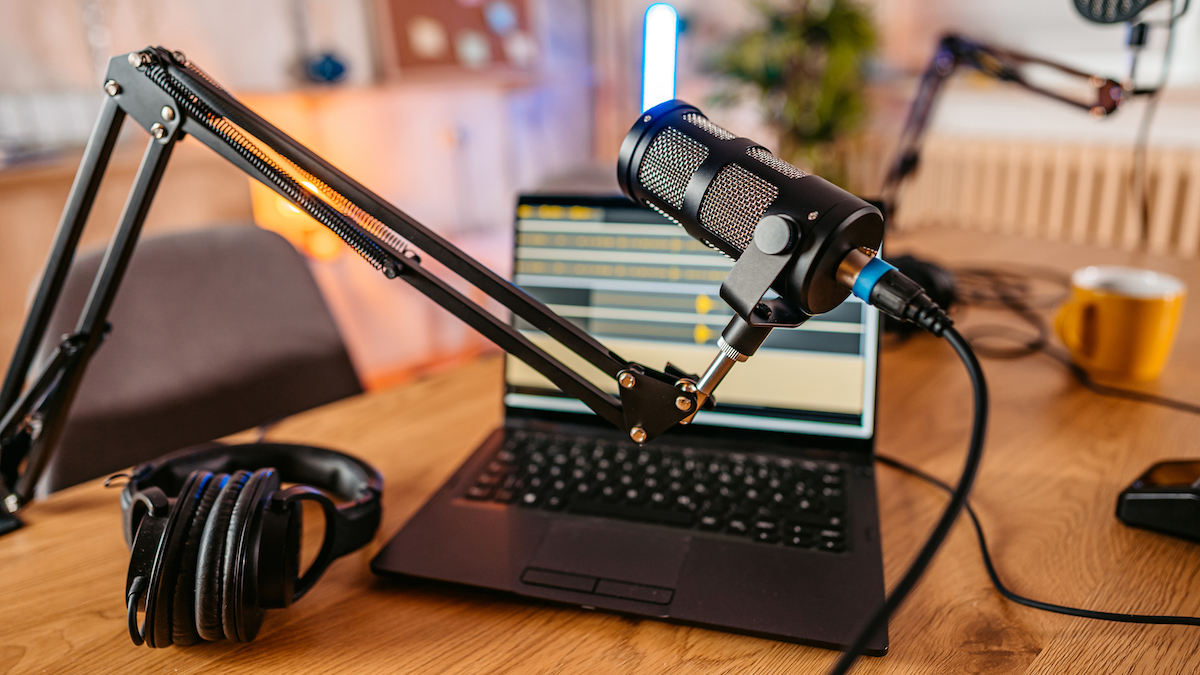
When you’re recording a podcast, be it your first or your 500th, you’ll be aware how important it is to capture, process and arrange high quality audio. To get the job done right you'll need to select the best podcast recording software.
There are plenty of solutions to help with podcast production, from simple free applications to fully-fledged multitrack studio packages, and here we’ll aim to show some of the options available to you, while offering advice on the things you should be looking out for when you choose the best podcast recording apps. Let's take a look...
Best podcast recording software: Our top picks
Finding the best recording software for you will be a very personal choice. You’ll either have some technical knowledge and be familiar with EQ and multitrack recording, or you’ll be more focused on quickly and easily producing great results without worrying about that annoying background hiss in your recordings.
If you're in the first camp, then the recommendation is easy; Adobe Audition is the industry standard, and for good reason. It has every tool you’ll need, and some you don’t even know you need yet. If, on the other hand, you don’t want to get bogged down in tweaks and tinkering with your audio, then we can happily recommend Apple Garageband, with its pick-up-and-play nature and capable toolkits making it a great choice for podcast producers of all abilities.
Best podcast recording software: Product guide
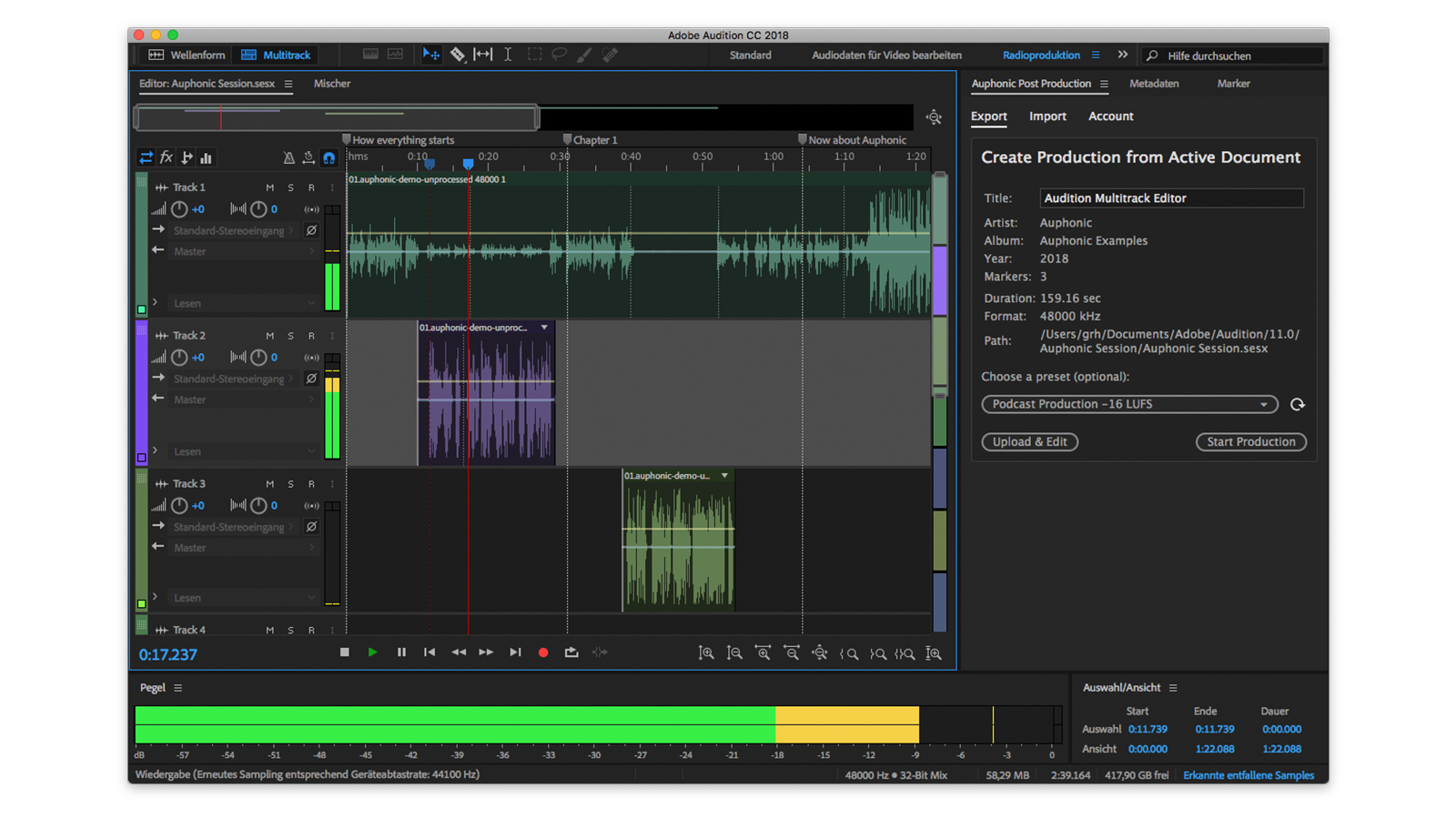
Specifications
Reasons to buy
Reasons to avoid
Producers of a certain vintage might remember Cool Edit Pro; way back in the ’90s/2000s, CEP was the software recording platform of choice for broadcasters, offering essential tools like background noise reduction and dynamics processing – we always remember the ‘classic soft knee’ preset could make anyone sound like a BBC veteran – along with a simple workflow that made it a staple of TV and radio studios everywhere. Cool Edit was eventually bought and rebranded into Adobe Audition, and in 2022 it remains the best option for pure audio recording and processing.
From precise editing and processing individual waveforms, through to arranging complex multi-track sessions, Audition has the features and functionality to solve almost any audio related problem you might come across. As part of the wider Adobe Creative Cloud suite, it integrates seamlessly with Premiere Pro, for example, in a way that its competitors simply can’t compete with.
Read the full Adobe Audition review
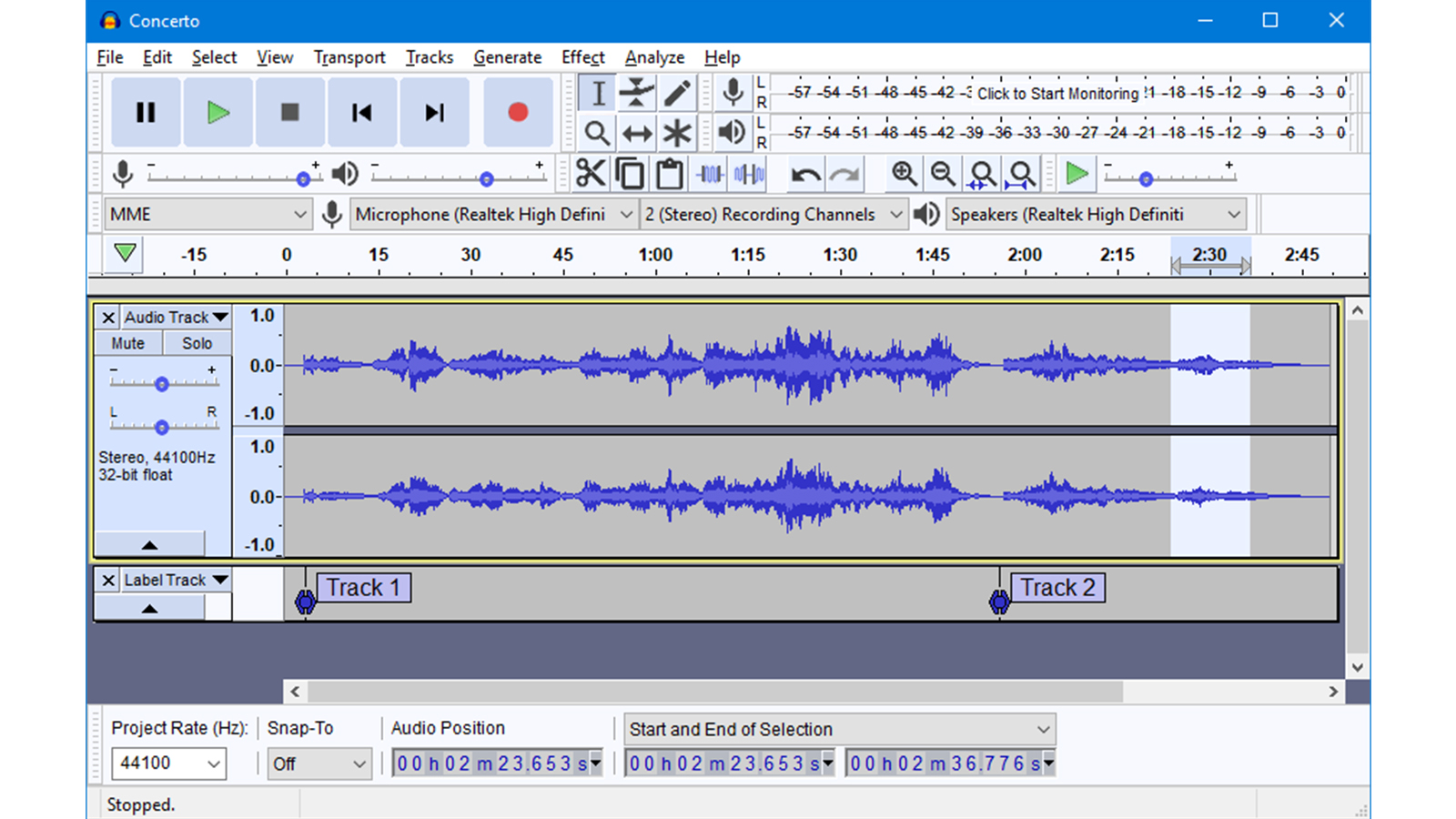
2. Audacity
Our expert review:
Specifications
Reasons to buy
Reasons to avoid
It’s one of the marvels of the internet in 2022 that applications like Audacity exist. As an open source platform, Audacity is free to download and use, and receives regular updates thanks to a welcoming and knowledgable community. Put simply, if you’re looking for a grown-up tool to help you record, mix and produce high quality audio, and aren’t prepared to shell out for Adobe Audition, then we’ll still direct you towards Audacity. Not bad for a 20-year-old piece of software.
That said, there are still reasons to check it out first as the ageing interface and simplistic styling means it’s not the most attractive recording software to work with. You might also find it lacking in some features you’d find elsewhere, and we have had minor (but annoying) issues with stability over the years – to be expected from freeware applications, but not ideal when you’ve just nailed the perfect take to see the spinning beach ball of doom. Regardless, Audacity is still a great solution, and is the ideal tool to dip your toe in the waters of production before shelling out for a more premium package.
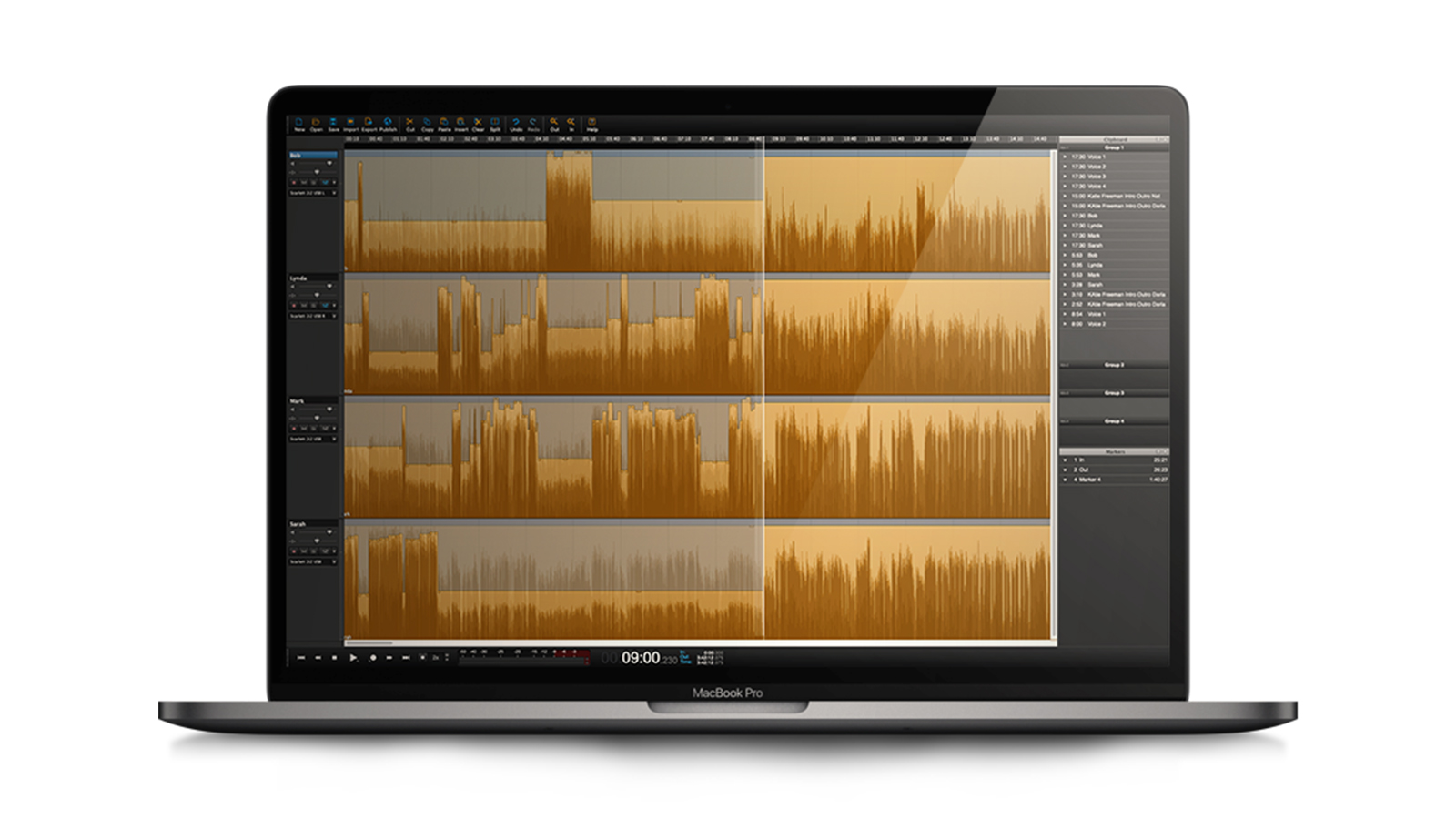
3. Hindenburg
Our expert review:
Specifications
Reasons to buy
Reasons to avoid
Naturally, when you’re recording a podcast, speech is the most important component. From setting the right input levels, through to minimising background noise at source, before then eventually working with levels, loudness, compression and dynamics; getting the speech sparkly can elevate a good podcast to a great one. If you’re a seasoned producer or studio engineer, the multitude of tiny actions you can take to ensure a great recording will come naturally but, for everyone else, there is Hindenburg.
Hindy, as it’s known, is the closest thing you’ll find to a free pass for achieving superb results from the spoken word. It employs various features and technical wizardry to monitor and correct things like loudness levels and background noise, meaning your recordings will sound incredible without much in the way of hassle for you.
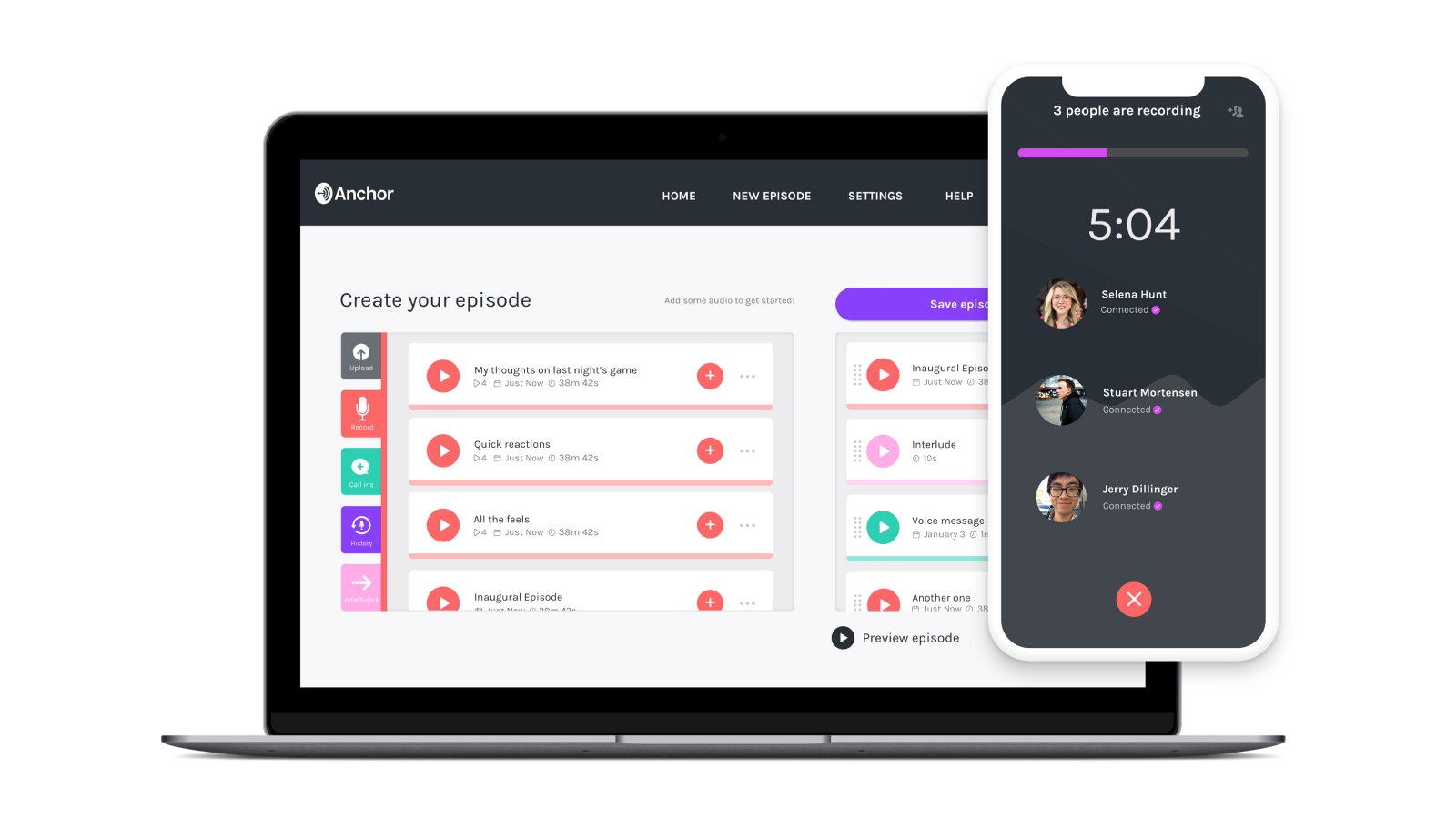
4. Spotify for Podcasters
Our expert review:
Specifications
Reasons to buy
Reasons to avoid
Something slightly different here. Spotify for Podcasters is a fully fledged recording and publishing platform you operate entirely from your web browser. In it, you can record your podcasts, import external audio, arrange episodes and add all the relevant meta-data you’ll need to in one simple platform.
You could, for example, record your audio using a portable device like a phone or tablet, and then simply upload it to your account, add in any extra audio you require - with the full Spotify music catalogue at your disposal – and away you go.
Admittedly, Spotify for Podcasters isn’t going to be the place you clean up that annoying hissing noise in your audio, or where you add in compression or EQ to make a mix shine, but as a quick and easy tool with deep integration to one of the largest hosting platforms on the web (and beyond), this is an interesting consideration.
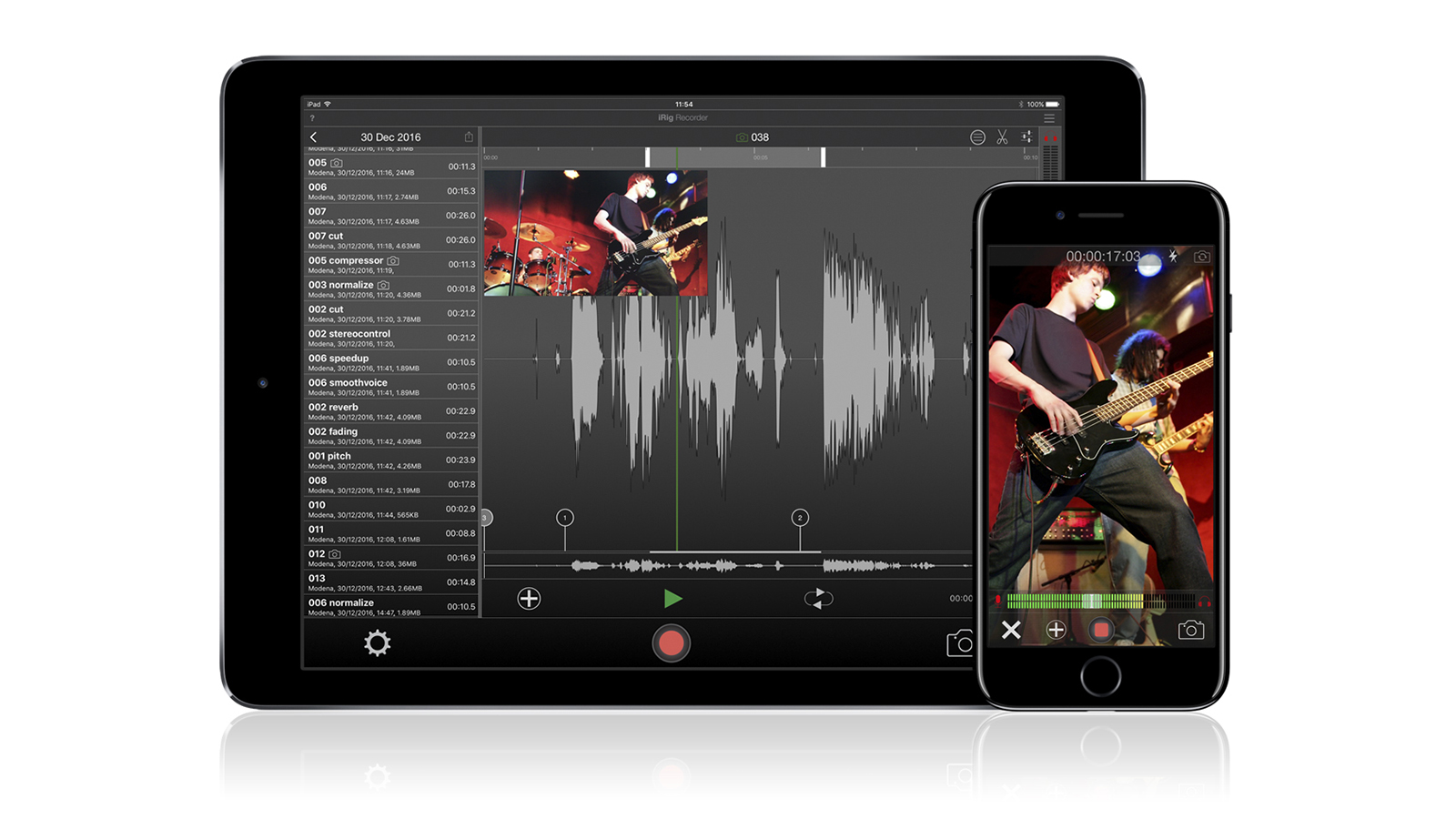
5. IK Multimedia iRig Recorder 3
Our expert review:
Specifications
Reasons to buy
Reasons to avoid
We’ve always been impressed with IK Multimedia’s offerings in the podcast market. From its iRig Mic HD, which has become a staple for roving news reporters, through to its sleek mobile recording interfaces, IK has really nailed the portable studio vibe. Its hardware is designed to work with any suitable software, but really comes to life when paired with IK Multimedia iRig Recorder 3.
iRig Recorder 3 is the complementary app to the firm’s hardware (although it can now be used with any hardware), and offers simple, one-touch recording of multiple sources (if you have the corresponding interface) and a nice selection of effects and tools to clean up any imperfect audio. The free version of the app offers some basic functionality, but to access the full suite of tools you’ll need to upgrade to the premium version.
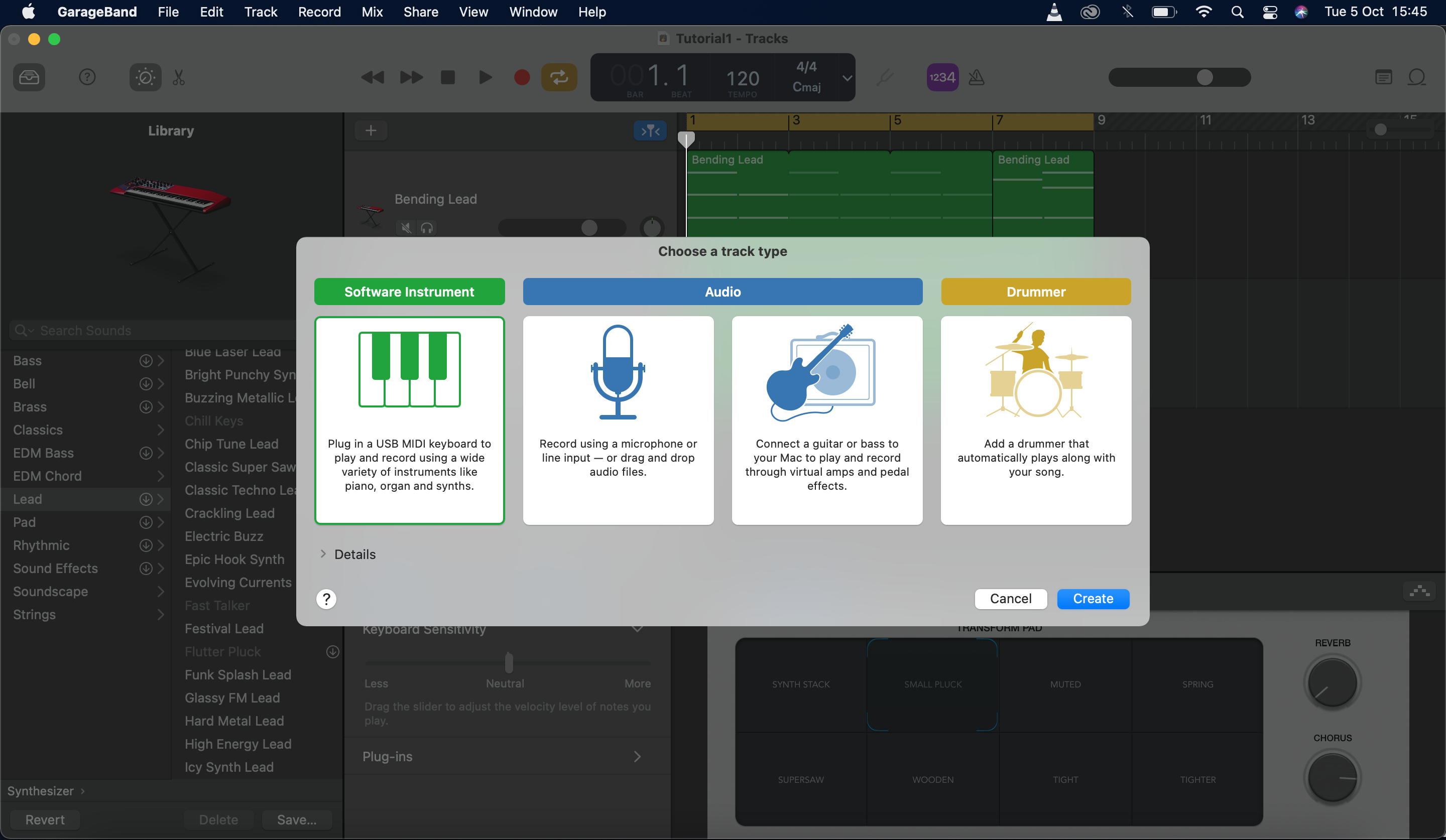
Specifications
Reasons to buy
Reasons to avoid
For as long as tablets and smartphones have been around, Garageband has been giving people a free and easy way to get into recording audio. It features many of the same tools you’ll find in more premium digital audio workstations (DAWs) yet never feels intimidating for newbies thanks to its intuitive touch workflow.
While clear value is to be found if you’re a musician, Garageband is more than capable of recording, arranging, mixing and producing podcasts. We particularly like the various effects on offer, which can either add a dash of professional sheen to your sound, or make you sound like an alien, which is fine by us. Naturally, being an Apple product, you can only use it on iPads and iPhones (along with a more fully-formed native MacOS version), but if you haven’t considered it, we’d definitely recommend it as being worth your attention.
Read the full Garageband review
Best podcast recording software: Buying advice
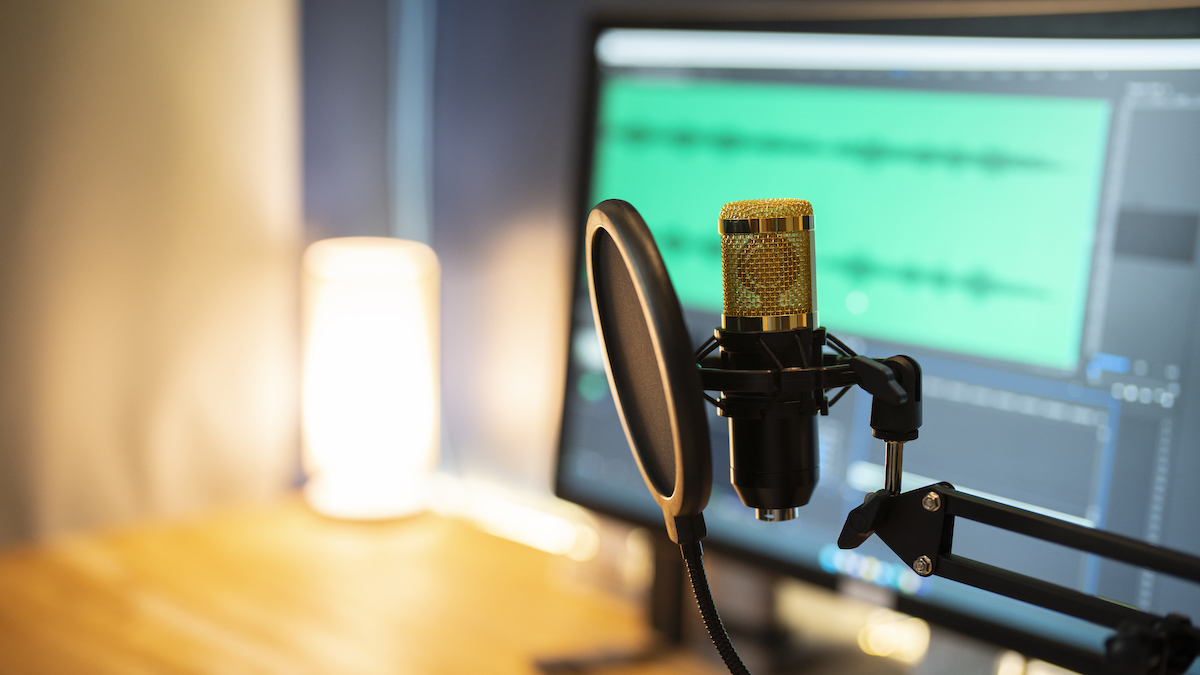
Selecting the best podcasting software for you
MusicRadar's got your back
Deciding on a podcast recording package is a hugely important step in your production journey, simply because once you find a piece of software you click with, it’s unlikely you’ll ever change it. So taking the time to learn the intricacies, benefits and functionality of the different options is important. Fundamentally, however, they all operate on the same principles, i.e. you connect up your different audio sources, click record and (hopefully) end up with some lovely, clean audio files which you can mix and arrange into the finished product.
Music recording vs broadcast software
Typically, there will tend to be two main categories into which the broader spectrum of audio recording software will fall; broadcast and music. While you can use music recording software like Logic or Ableton Live quite comfortably for the purposes of recording a podcast, beginners might find them quite complex and difficult to get to grips with the basic functionality, so we’ll focus instead on mainly pod and broadcast-specific applications here.
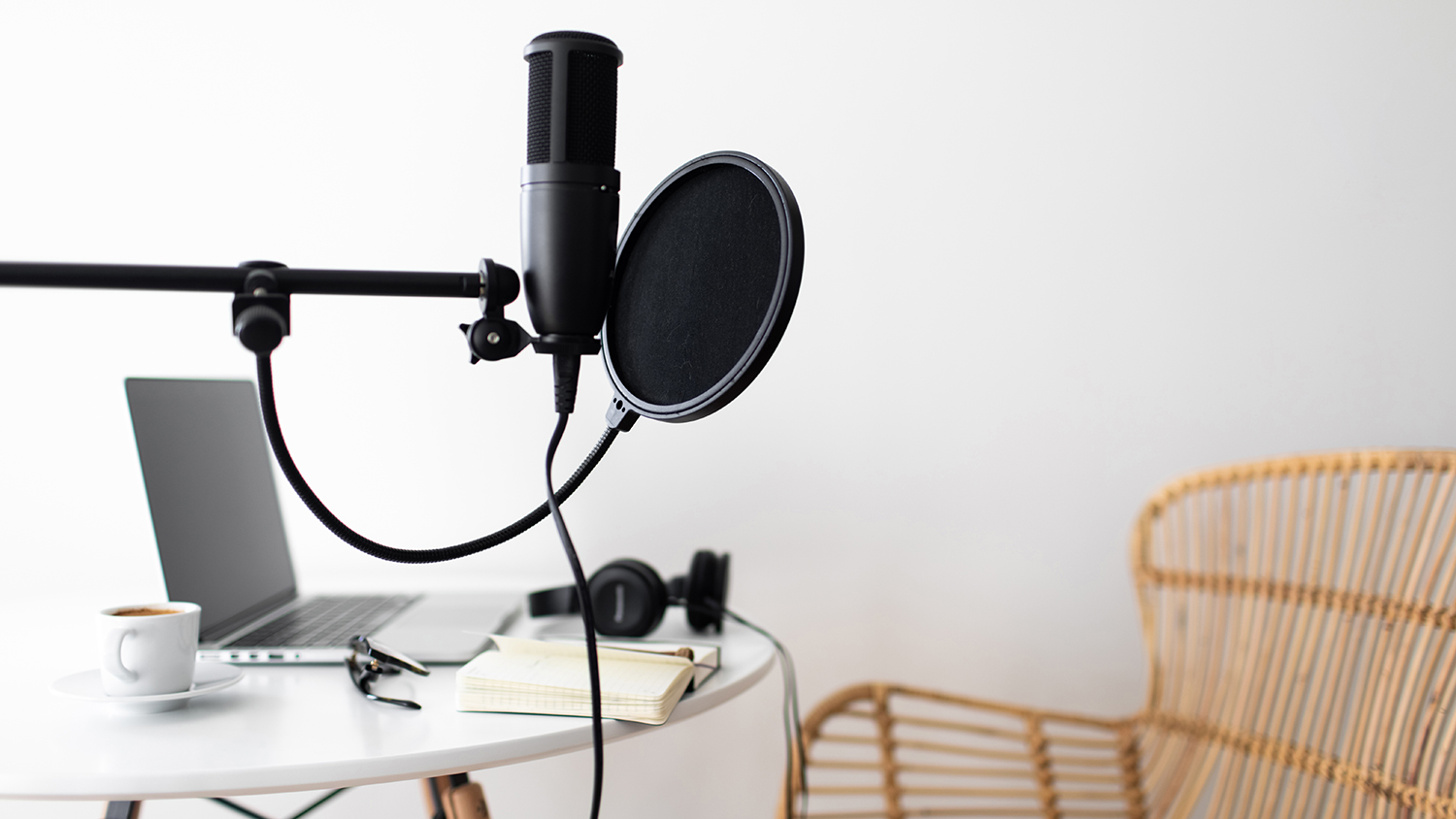
How to start a podcast: a beginner's guide to podcasting
The functionality you should be looking for includes the ability to record multiple audio sources simultaneously, at least within the limits of your audio interface. Interfaces are the hub into which you connect your microphones - whether that's a regular recording microphone or dedicated podcast mic, and then your speakers and studio headphones for ‘monitoring’ the outgoing audio. A simple interface will allow for a couple of incoming signals, and perhaps one or two sets of headphones, while professional studio models can offer significantly more connectivity.
Another key function of podcast recording software is the tools they provide for editing, arranging and mixing your finished audio. Things like EQ, compression and dynamics processing allow you to sprinkle a bit of professional sheen on your sound, while more advanced broadcast tools like de-essers and noise removal can work wonders on removing sibilance and background hiss.
As podcasting has grown, so too have the options available to content creators with software. Newer, podcast-specific tools exist which can, for example, automatically transcribe text, make it easier to remove unwanted “erms” from the final recordings, and even help you with the eventual publication of your finished podcast.
Find out more about how we test music gear and services at MusicRadar.
Related buyer's guides
- Best USB microphones: all-in-one mics for vlogging, podcasts and more
- Best podcast mixers: the central hub of your podcasting setup
- Best podcast hosts: including free podcast hosting options
- Best budget podcasting microphones: wallet-friendly for budding podcasters
- Best podcast headphones: an essential tool for your podcast rig
- Best vocal plugins: vocal processing software to make your voice shine
Want all the hottest music and gear news, reviews, deals, features and more, direct to your inbox? Sign up here.
Chris Corfield is a journalist with over 12 years of experience writing for some of the music world's biggest brands including Orange Amplification, MusicRadar, Guitar World, Total Guitar and Dawsons Music. Chris loves getting nerdy about everything from guitar and bass gear, to synths, microphones, DJ gear and music production hardware.
